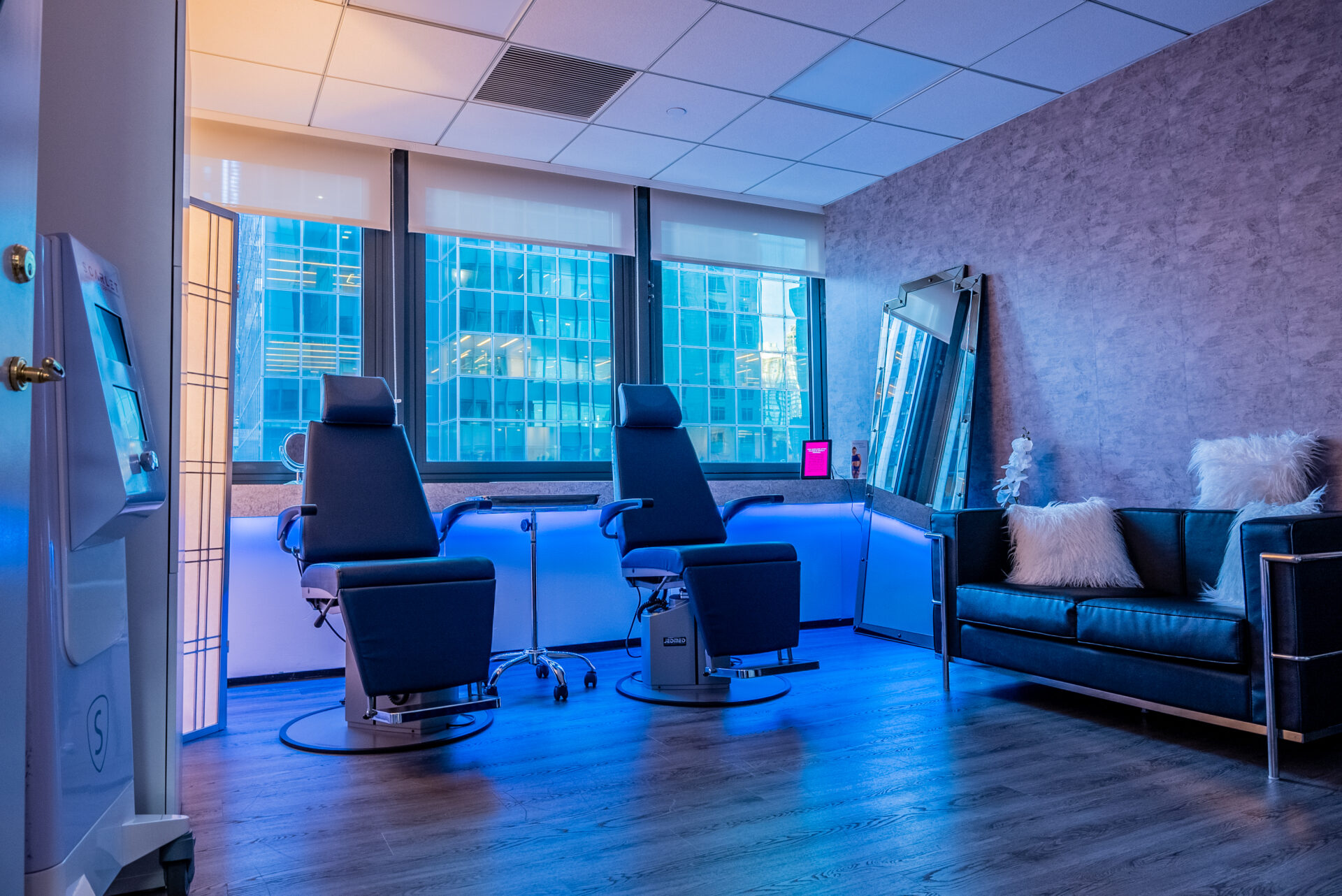
No more waiting for relief.
1. Book a complimentary virtual or in person consult
2. Get blood drawn for a complete hormone assessment
3. Discuss your results with our clinician
4. Start your therapy
Fatigue & lack of energy.
Difficulty sleeping.
Reduced mental focus, memory, brain fog.
Mood swings, feelings of anxiety and depression.
Hot flashes and night sweats.
Stubborn weight gain.
Inability to lose weight.
Decrease muscle strength.
Muscle nad joint pain.
Reduced sexual desire.
Decreased libido and sensation
Many other symptoms associated with hormone imbalances
Bioidentical Hormone Replacement Therapy (BHRT)

Experienced medical professionals and specialists are highly trained in the administration of Bio-Identical Hormone Optimization treatments. Their expertise and dedication ensure that you receive the highest quality of care, with personalized treatment plans meticulously tailored to your specific needs.
Safety is our utmost priority. We strictly adhere to best practices in delivering our Bio-Identical Hormone Optimization treatments, using bioidentical hormones to ensure both effectiveness and safety. We uphold the highest standards of quality and possess all relevant certifications and accreditations, offering you the peace of mind that you truly deserve
We provide surgical services, injectables, and weight loss, hormone replacement. All our clinicials are board certified, we use only top of the line american products. Located in the heart of New York on Madison avenue.

Bio-identical hormone replacement therapy (BHRT) uses hormones that are chemically identical to those the human body produces naturally. These hormones are typically made from plant estrogens. Here are several potential benefits of bio-identical hormone therapy compared to traditional hormone replacement therapy (HRT):
Tailored to Individual Needs: Bio-identical hormones can be customized to each person’s individual hormonal needs, based on laboratory testing of hormone levels. This is a significant benefit over traditional HRT, which generally uses a one-size-fits-all approach.
Mimics Natural Hormone Structure: Since bio-identical hormones have the same chemical structure as the hormones naturally produced by the body, they are thought to be recognized by the body as its own hormones, which may result in a more efficient utilization and potentially fewer side effects.
BHRT is backed by science: Optimized hormones may help relieve some age related health issues: decreased bone density, poor heart health, abnormal breast and prostate health, diminished cognition and memory, reduced energy and sex drive.
Flexible Dosing Options: Allowing more flexibility for the patient and the provider to choose the method that best suits the patient’s lifestyle and treatment goals.
For Women:
Bio-identical hormone therapy is often used to alleviate symptoms associated with perimenopause and menopause, such as hot flashes, mood changes, sleep disturbances, and vaginal dryness. The hormones commonly replaced or supplemented are estrogen, progesterone, and sometimes testosterone.
For women, the balance between estrogen and progesterone is particularly important. Some women may only need estrogen supplementation, particularly if they have had a hysterectomy. However, in women who still have a uterus, progesterone is also given to mitigate the risk of endometrial cancer from estrogen alone.
For Men:
In men, bio-identical hormone therapy is primarily used to address symptoms of testosterone deficiency that can occur with age, often referred to as “andropause” or “male menopause.” Symptoms can include fatigue, depression, cognitive decline, and reduced libido.
Though less commonly recognized, men also produce estrogen and progesterone, and an imbalance of these hormones can also impact health. However, testosterone is the primary hormone addressed in male bio-identical hormone therapy.
In both sexes, the specifics of bio-identical hormone therapy—such as the hormones used, the doses, and the methods of administration—can vary widely depending on the individual’s symptoms, hormone levels, overall health, lifestyle, and personal preference. A healthcare provider who specializes in bio-identical hormone therapy can provide guidance based on these factors.
Hormone Pellets:
Hormone pellets are tiny, solid cylinders of hormones that are inserted under the skin, usually in the hip or buttock area, through a small incision. Over several months, these pellets slowly release hormones into the body.
Pellets have the advantage of providing a slow, steady release of hormones, which can result in more stable hormone levels without the peaks and valleys that can occur with injections. This can potentially lead to more consistent symptom relief. Additionally, since pellets only need to be inserted every 3-6 months, they can be more convenient than daily or weekly treatments.
Symptoms of hormonal imbalance can include:
To determine if symptoms are due to hormonal imbalances, healthcare providers may order blood tests to measure hormone levels.
It’s more common to experience noticeable changes within several weeks to a few months. For some people and some symptoms, it may take up to six months to fully feel the effects.
Symptoms related to menopause or andropause, such as hot flashes or night sweats, may improve relatively quickly. However, other changes, such as improvements in bone density or shifts in body composition, take longer to occur.
Keep in mind that everyone’s body responds to hormone therapy differently. It’s essential to maintain open communication with your healthcare provider, report any changes you observe, and have regular follow-ups to ensure that your treatment plan is working optimally for you. Also, remember that achieving hormonal balance is a process and adjustments to your therapy may be necessary over time.
Determining the right dose of hormone therapy is a personalized process that involves working closely with your healthcare provider. Here’s what this process typically involves:
Initial Assessment: This usually includes a detailed medical history, a physical examination, and laboratory tests to measure your current hormone levels. The initial dosage of hormone therapy is often based on this information.
Monitoring Symptoms: After you start hormone therapy, your healthcare provider will ask you about any changes in your symptoms. This can help them understand how your body is responding to the therapy. It’s essential to keep a record of any changes you notice, even if they seem minor or unrelated, and report these to your healthcare provider.
Follow-up Testing: Your healthcare provider will likely order follow-up tests to measure your hormone levels while you’re on therapy. This can help them see how your body is responding to the treatment and adjust the dose if necessary.
Adjustments: Your hormone therapy may need to be adjusted over time based on your symptoms, test results, and any side effects you experience. This is a normal part of the process. It may take some time to find the right dose that works best for you.
Remember, it’s important to work with a healthcare provider who is experienced in hormone therapy to ensure that your treatment is safe and effective. You should never attempt to adjust your dose or regimen without consulting your provider first. It’s also important to be patient – finding the right balance can take time.